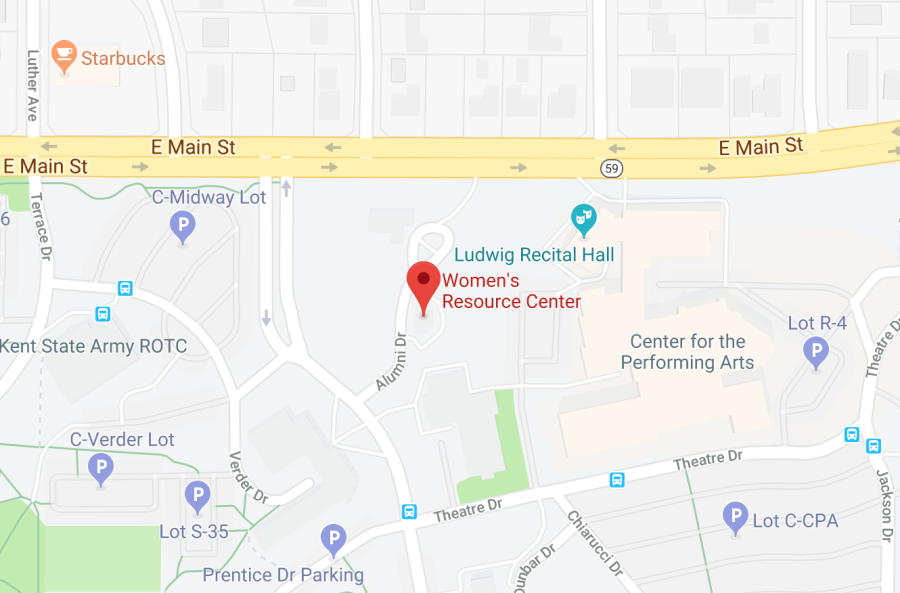The Center for Sexual and Relationship Violence Support Services fully adapts to the pandemic with virtual programming
Location of the Kent State Women’s Center, which also houses the Sexual and Relationship Violence Support Services office (SRVSS).
The Center for Sexual and Relationship Violence Support Services continues to offer all of its advocacy and support programs despite the spread of COVID-19. Other than converting its programs to a virtual format, little has changed for the center.
SRVSS provides advocacy and support services for individuals experiencing power-based personal violence — violence like sexual assault and domestic abuse.
The spread of COVID-19 impacted many support services’ abilities to operate. Establishments such as Caritas Cafe, run by Catholic Charities to provide free breakfast for low-income and homeless individuals, closed when the pandemic began. SRVSS adapted.
“Even though we are virtual, the support and the services we offer our students have not changed,” said Yvette Roberts, the coordinator for SRVSS. “We are here Monday through Friday 8 a.m. to 5 p.m.”
Programs the center offers include weekly support groups held every Tuesday from 5 to 7:30 p.m. — also known as Survivor’s Night. For the first half of the evening people can attend the sexual assault support group, followed by the “healing from abuse” support group for the second half.
People can join the weekly meetings via Zoom using the meeting ID found on the Survivor’s Night webpage.
Roberts said attendance for the meetings varies but people are becoming more aware.
“One thing I can say is people are starting to learn,” Roberts said. “They’re realizing that we are holding our support groups virtually and they’re entering our spaces.”
The SRVSS staff also reaches out to people directly when they are notified of a violent incident.
“Anytime we get a report of someone who has experienced power-based personal violence we send them an outreach email,” Roberts said. “About 40 percent of them reach back out for support services.”
According to Emani Mickens, a junior psychology major and SRVSS intern, the center does more than just offer support to survivors of violence.
“I think that outside of providing the services that we do for sexual assault support or relationship violence support, we also provide support in self-care and other empowering feelings for students across campus who haven’t been affected by sexual assault or relationship violence,” Mickens said.
Alongside support services, the center offers educational programs for university students and staff such as its Green Dot workshops — aiding in violence prevention by educating community members on power-based personal violence and teaching preventative strategies.
The center provides other educational programs such as a self-care program usually held in November and “In Their Shoes,” a workshop that has participants navigate the process of seeking resources and help as if they were a survivor of power-based personal violence.
“When students were coming to our events they also left feeling empowered, and very comfortable and happy,” Mickens said.
Individuals can contact SRVSS for support through its website. Students can call to set up appointments to speak in-person if they prefer.
Anthony Elder covers crisis, recovery, hunger and help. Contact him at [email protected].



